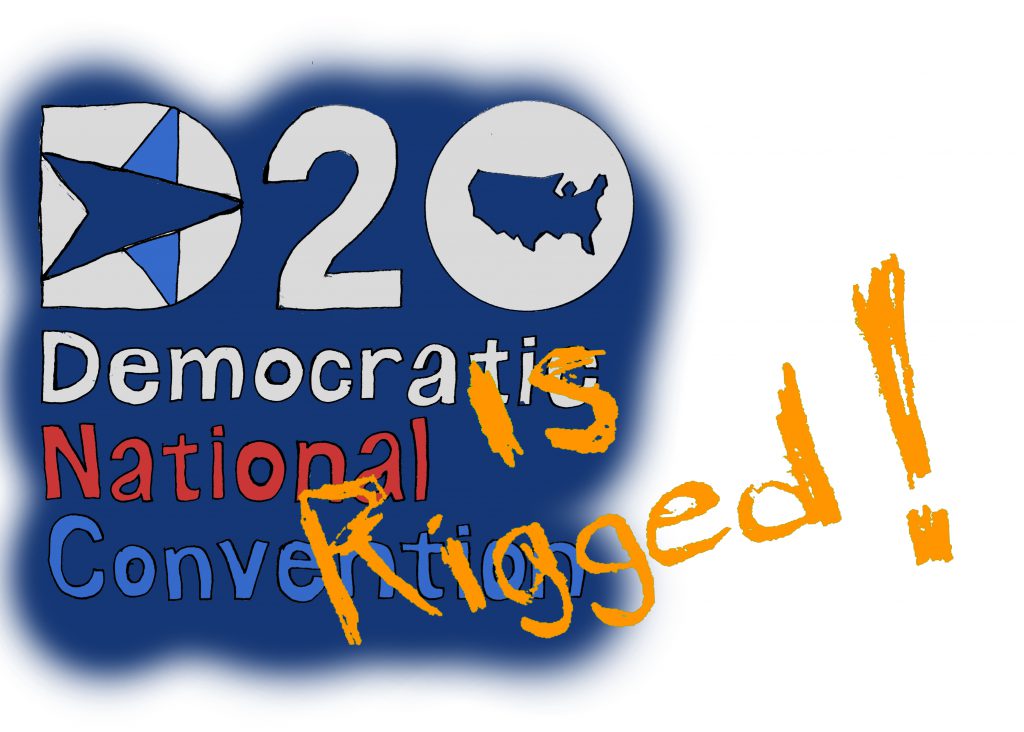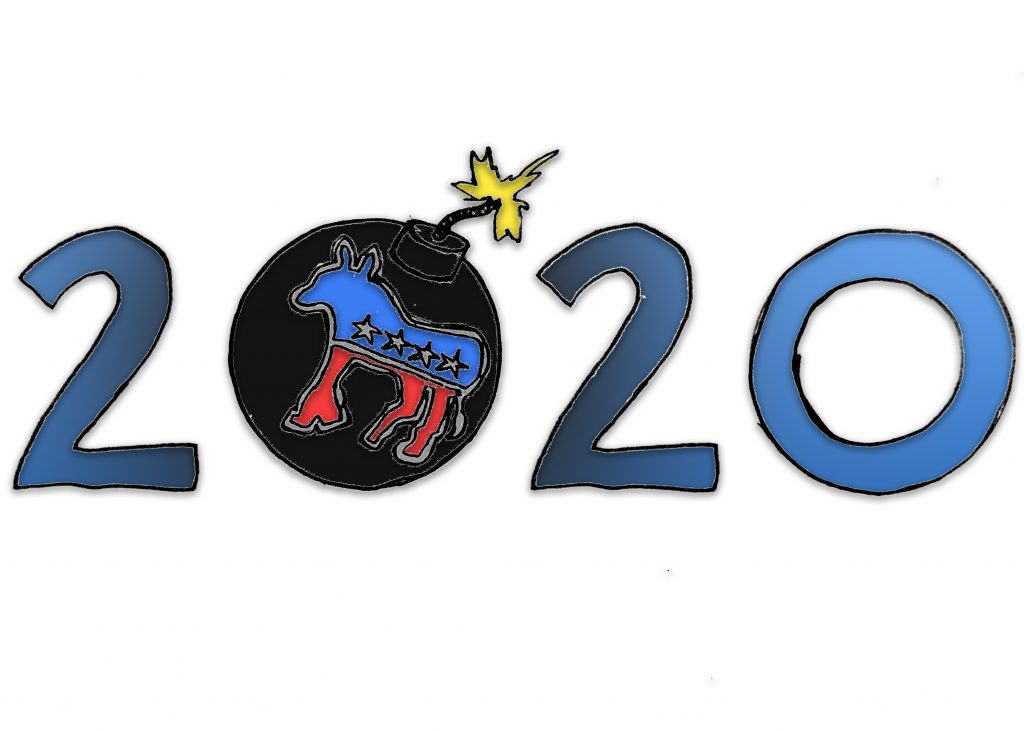The 2016 primary season was an enormous debacle. It launched an ideological civil war between party progressives and moderates after Clinton received a 350 superdelegate advantage over her opponents before the race started. Tom Perez’s bold stance to reform the Democratic National Committee back in August 2018 was, among disenfranchised Bernie Sanders supporters, a step in the right direction. Will the Democratic Party continue the bureaucratic jargon that delegitimized the previous primary election?
Of course, they will.
The party’s damage control does not resolve their dubious nature of selecting presidential nominees. As a local campaign advertiser during the 2018 midterms, it was distressing to see so many still oblivious to the extent systemic bias continues to repress voter populism. The DNC’s efforts to improve operations have since hampered the 2020 primary more than they have provided transparency.
Of the twenty primary contenders, ten were chosen to attend September’s primary debate, which drew over 14 million viewers. A limited spot on television meant that candidates had to satisfy new party qualifications. Each needed a 2% approval within four “pre-approved polls” and at least 400 unique donors in 20 states; a total of 130,000 unique donors.[1]
Ironically, thresholds intended to filter candidates with dynamic grassroots support from stale campaigns have managed to subdue trending leadership. Take Rep. Tulsi Gabbard, a modest contender who received 11% greater individual campaign contributions than primary opponent, Sen. Amy Klobuchar. Gabbard was disqualified because she failed to produce two qualifying polls despite passing the threshold in 26 nationally recognized polling centers. To the DNC, Klobuchar produced a stronger campaign, rewarding the Minnesota senator television access.
Those lucky to bypass arbitrary guidelines are then saddled by the politics of caucus elections. Caucuses are still counted in person and by hand, making human error inevitable in times of secured ballot machines. Resources were so scarce during the 2016 Nevada Caucus that, in one instance, election officers resorted to physically write on themselves to tally results.[2] Worse, the fate of Iowa’s democracy relied on coin tosses during a tie.[3] Democrats took initiative in making caucuses more inclusive through absentee voting requirements. The new measure, while noble, addressed none of this.
The optics of poor election management sour the party’s reputation as a champion for civil rights. Even the “historical” superdelegate reform turned hollow as the DNC did not oust them altogether. Instead, the delegates will only vote in the event of a contested election. Superdelegates, comprised mainly of legislatures and committee officials, have an exceptionally disproportional influence compared to their constituents. They undermine popular opinion regardless if they only constitute 15% of the total delegation. In context, 712 party members amounted the same voting power as 5.3 million Americans in 2016. As a party deadlock between Biden, Warren, and Sanders is likely, superdelegates are opportunistic to cause further turmoil.
Some Democrats view the reforms a superfluous attempt to impress the “loud socialist minority.” In 2017, DNC legal representatives branded themselves as a private organization to justify discriminating participants that challenge their status quo.[4] In their defense, Democrats have no obligation to back leadership that jeopardize the party’s principles or overall mission.
A successful organization, however, must read their audience. Progressive policies like universal healthcare and the Green New Deal garner approval ratings well above 60% among U.S adults, let alone liberals.[5] Democrats want voters to be enthusiastic about them. Liberating the primary process will naturally cater to leadership that would bring that fervor forward. If committee heads do not trust the self-determination of their voter base, the primary is only giving the illusion of choice.
Democratic leaders need to direct action by averaging all nationally syndicated polling results rather than artificially narrowing the pool to sixteen. All state caucuses can be replaced with primaries, with eight states already leading by example. They can also get rid of superdelegates as was originally assured. These new reforms are not revolutionary. They can all be implemented before 2020. I worry Democrats are too comfortable that their new primary will incite party unity and Trump’s demise.
Don’t count on it yet.
Work Cited
[1] “DNC Announces Qualification Criteria For Fifth Presidential Primary Debate.” Democrats. DNC Services Corporation, 23 Sept. 2019. Web. 23 Sept. 2019.
[2] TheYoungTurks. “Las Vegas Caucus Ends Before Delegates Chosen, Chaos Erupts.” YouTube. YouTube, 22 Feb. 2016. Web. 22 Sept. 2019.
[3] Bump, Philip. “Here’s Just How Unlikely Hillary Clinton’s 6-for-6 Coin-toss Victories Would Have Been.” The Washington Post. WP Company, 29 Apr. 2019. Web. 22 Sept. 2019.
[4] Sainato, Michael. “DNC Lawyers Argue DNC Has Right to Pick Candidates in Back Rooms.” Observer. Observer, 01 May 2017. Web. 16 June 2021.
[5] Alonso-zaldivar, Ricardo. “Poll: Support for ‘Medicare-for-all’ Fluctuates with Details.” AP NEWS. Associated Press, 23 Jan. 2019. Web. 22 Sept. 2019.


